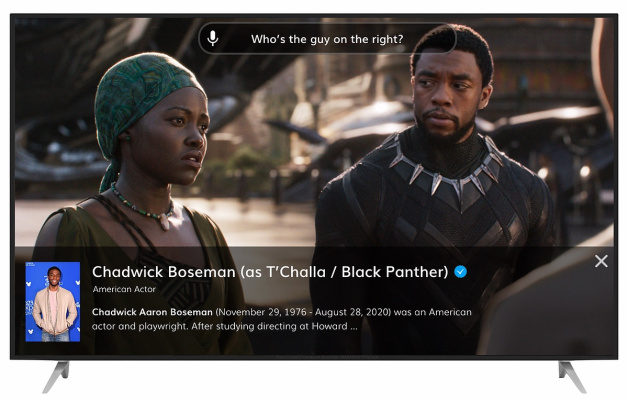Business
Disruptel raises $1.1M to make smart TVs smarter

St. Louis-based voice assistant startup Disruptel is announcing that it has raised $1.1 million in seed funding.
The money comes from an impressive group of investors who seem well-aligned with what the startup is aiming to do — namely, build a voice assistant that can provide detailed information about what’s happening on your TV screen. Those investors include PJC and Progress Ventures (which led the round), along with DataXu co-founder and former CEO Mike Baker, Siri co-founder Adam Cheyer, Sky executive Andrew Olson and DataXu co-founder Bill Simmons.
Disruptel CEO Alex Quinn told me that he began to pursue the idea in high school — the initial idea was more focused on TV gesture controls, but he decided that there was a bigger opportunity in the fact that “smart TVs don’t know what’s going on on their own screen.”
So he said Disruptel has built technology that has “a contextual understanding of everything that’s happening on the screen — every product, all of that data.” So for example, you could use the technology to ask your TV, “Who is the person in the brown shirt?”
Quinn’s description reminded me of Amazon’s X-Ray technology, which can tell you about the actors on-screen, as well as additional trivia about whatever movie or TV you’re watching on Amazon Prime. But he said that Amazon’s solution (as well as a similar one from Google) involves “static data — the videos have all been pre-processed.” With Disruptel, on the other hand, “everything is happening in real time,” which means it could theoretically work with any piece of content.
Disruptel’s flagship product Context is a voice assistant designed to work with smart TVs and their remotes. Quinn said he’s hoping to partner with smart TV manufacturers and streaming services and get this into the hands of viewers in the second half of this year.
In the meantime, the company has already created a Smart Screen extension for Google Chrome that you can try right now (using the extension, I successfully identified the actors on-screen during multiple scenes of an episode of “The Flash”). Quinn said the company is using the extension as way to test the product and gather engagement data.
Baker (who sold his adtech company dataxu to Roku in 2019) said that he was convinced to back the company after seeing a demo of the product: “It was interesting to see the power, the fluidity of the experience.”
He also suggested that Disruptel’s tech creates new opportunities to improve on the smart TV advertising experience, which he described as largely consisting of “crap” — though he also pointed to Hulu as an example of a service that can be successful with “non-intrusive advertising and interstitial ads.”
Asked how a high school student could create this kind of technology, Quinn (who is now 21) said, “We had to learn. Our team is very focused on machine learning, and our machine learning engineers were reading research paper after research paper. We think that we have found the best research solutions.”
He added that if Disruptel had followed the leads of the big players and focused on pre-processing content, “We would never even have begun that journey.”
-

 Entertainment7 days ago
Entertainment7 days agoWhat’s new to streaming this week? (Jan. 17, 2025)
-

 Entertainment6 days ago
Entertainment6 days agoExplainer: Age-verification bills for porn and social media
-

 Entertainment6 days ago
Entertainment6 days agoIf TikTok is banned in the U.S., this is what it will look like for everyone else
-

 Entertainment5 days ago
Entertainment5 days ago‘Night Call’ review: A bad day on the job makes for a superb action movie
-

 Entertainment5 days ago
Entertainment5 days agoHow ‘Grand Theft Hamlet’ evolved from lockdown escape to Shakespearean success
-

 Entertainment6 days ago
Entertainment6 days ago‘September 5’ review: a blinkered, noncommittal thriller about an Olympic hostage crisis
-

 Entertainment6 days ago
Entertainment6 days ago‘Back in Action’ review: Cameron Diaz and Jamie Foxx team up for Gen X action-comedy
-

 Entertainment6 days ago
Entertainment6 days ago‘One of Them Days’ review: Keke Palmer and SZA are friendship goals

















